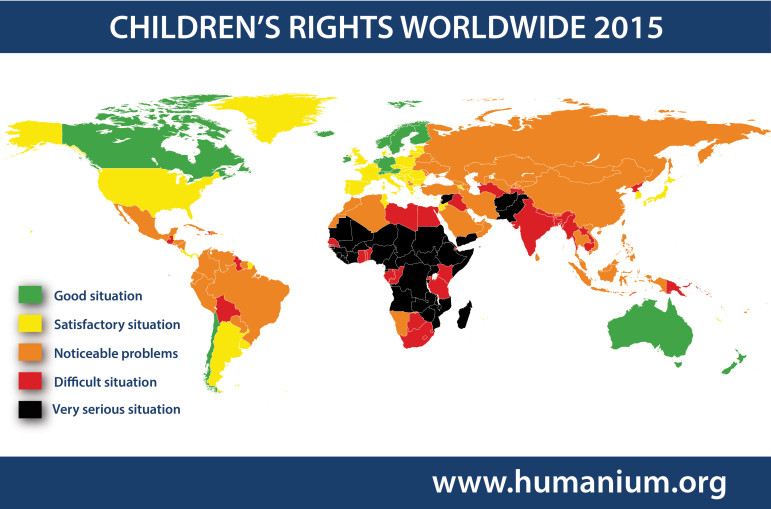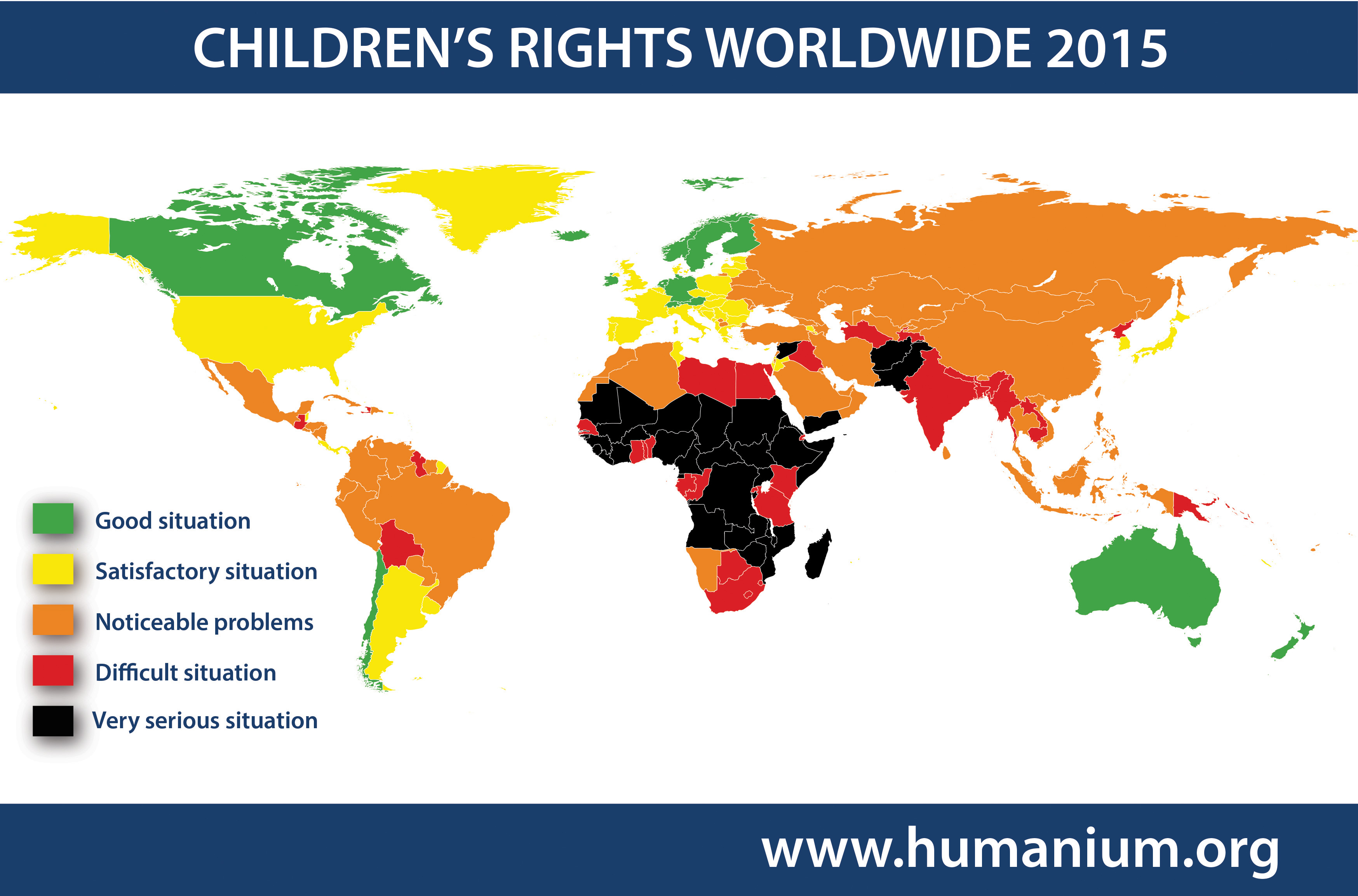
Humanium
Humanium, a global NGO “dedicated to stopping violations of children’s rights throughout the world,” offers information and maps to show the status of child well-being around the world. humanium.org/en/map-respect-children-rights-worldwide
The provisions of the U.N. Convention on the Rights of the Child have been incorporated into the laws of several countries, according to the UNICEF report “25 Years of the Convention on the Rights of the Child: Is the World a Better Place?”
The World Policy Analysis Center at UCLA’s Fielding School of Public Health developed a database on how well U.N. member nations protect children’s rights.
It notes that a majority of nations have passed laws to prevent hazardous child labor, for example. Although child marriage remains a problem, the percentage of nations with 18 as the legal age for marriage grew from 76 percent in 1995 to 87 percent in 2013. Ninety percent of nations that agreed to make primary education compulsory and free have done so, according to the center.
The CRC asserts children’s right to equal treatment regardless of race, sex, language, religion and other differences. It also asserts a right to health and education. When these rights are written into constitutions, they have an impact, according to the World Policy Analysis Center.
For example, the prohibition against gender discrimination in the constitutions of Botswana, Kenya and Zimbabwe were used to successfully challenge regulations that banned pregnant girls from school.
In Nigeria, a non-discrimination clause in the constitution was used to challenge a custom denying inheritance rights to girls.
Some additional examples of the way the CRC has made a difference, according to UNICEF and other sources, include:
Health
- Algeria instituted a national vaccination campaign and halved its infant mortality rate, according to Consultancy Africa Intelligence.
Education
- Thirteen countries have passed laws on education in response to the CRC, according to UNICEF.
- Ninety-seven percent of countries that have ratified the CRC have made primary education tuition-free.
Child labor
- In 2001, Paraguay passed child labor laws calling for safe working conditions and periodic medical exams.
Courts
- South Africa set up a separate juvenile justice system after ratifying the CRC.
- Eritrea made changes to its penal code, creating penalties for parents or guardians who abandon, neglect or abuse their children.
Child marriage
- In 1995, 4 percent of countries ratifying the CRC had no minimum legal age for marriage. In 2013, only 1 percent had no minimum age.
Child soldiers
- The Philippines passed a law banning child soldiers.
As the U.N. recognized the CRC’s 25th anniversary, Kelly L. Razzouk, U.S. senior advisor, spoke at the U.N. General Assembly last October, noting: “We should all celebrate our successes in improving the lives of children over the past 25 years. As the secretary-general’s report indicates, the global rate of under-5 mortality has been almost halved, from 90 deaths per 1,000 live births in 1990 to 48 per 1,000 in 2012. New HIV infections in children under 15 have declined by 35 percent globally between 2009 and 2012.
“But challenges remain, and there is much work that still needs to be done. In 2014, the lives of children around the world continue to be threatened. We have been horrified by images of ISIL terrorists rounding up young Yezidi and Christian girls from Iraq and auctioning them off to the highest bidder as sex slaves.
“Ebola has orphaned thousands of children in West Africa. We were appalled when hundreds of schoolgirls in Nigeria were abducted and terrorized because they were seeking an education.
“And the children of Syria continue to suffer physical and psychological pain under a brutal regime. According to UNICEF, over 5 million are in need inside Syria and 1.5 million are living in Syria’s neighboring countries as refugees.”
Razzouk lauded gains in the United States through expanded funding for the Early Head Start and Race to the Top programs (for preschool education to children from low and moderate-income families) and the Affordable Care Act “providing quality, affordable health care for all children” and “greater choices to meet the needs of children.”
Sources: UNICEF, World Policy Forum, Consultancy Africa Intelligence
For more information:
WORLD Policy Forum provides research, data and maps “for sharing ideas and resources on policies from around the world.” worldpolicyforum.org/topics/childhood/policies
Back to main story “The Strange Career of a Children’s Rights Treaty”


























